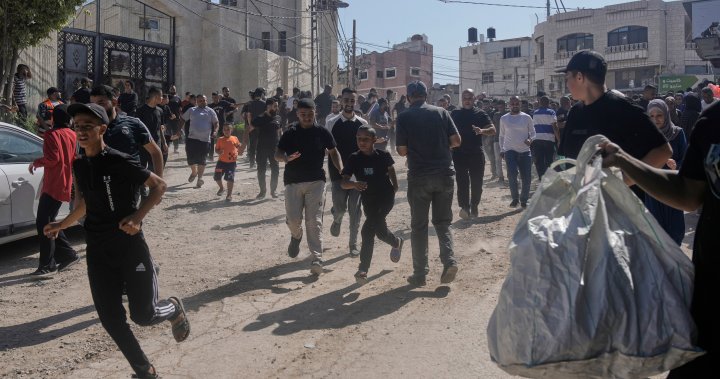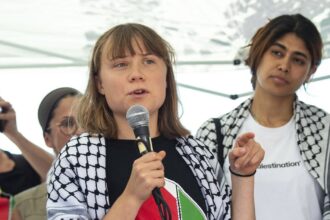In a decisive turn that threatens to extend the devastating Gaza conflict, Israeli Prime Minister Benjamin Netanyahu has firmly rejected proposals that would allow Hamas any governance role in post-war Gaza, throwing recent ceasefire negotiations into disarray. The announcement comes as international pressure mounts for a resolution to the eight-month conflict that has claimed over 37,000 Palestinian lives and displaced nearly two million people.
“There will be no Hamas in Gaza – not in governance, not in security,” Netanyahu declared during a televised address on Sunday, directly contradicting key elements of the U.S.-backed ceasefire framework. “Israel maintains its right to operate militarily throughout Gaza to prevent terrorism from rearing its head.”
The Prime Minister’s stance appears to directly challenge aspects of the three-phase ceasefire proposal that U.S. President Joe Biden outlined last month, which envisioned a gradual withdrawal of Israeli forces from populated areas in Gaza. The plan had initially sparked cautious optimism among regional observers, with Hamas signaling potential acceptance of its core principles.
Dr. Eliana Rosenthal, Middle East policy expert at the University of Toronto, told CO24, “Netanyahu is walking a tightrope between international diplomatic pressure and domestic political constraints. His coalition government depends on far-right partners who have threatened to collapse the government if Hamas retains any foothold in Gaza.”
The rejection coincides with recent political developments in the United States, where President-elect Donald Trump has indicated he might pursue a different approach to the conflict upon taking office in January. Trump has suggested Israel should “finish the job quickly” before his inauguration, potentially signaling reduced American pressure for restraint.
Meanwhile, humanitarian conditions in Gaza continue to deteriorate at an alarming rate. The World Health Organization reports critical shortages of medical supplies, clean water, and food throughout the territory. Dr. Hassan Khalidi, a surgeon at Gaza’s Al-Shifa Hospital, described conditions as “beyond catastrophic” in a statement to international aid organizations.
“We’re performing surgeries without anesthesia, treating wounds with limited antibiotics, and watching preventable deaths occur hourly due to lack of basic supplies,” Khalidi said.
The economic impact extends beyond Gaza’s borders. According to financial analysts, Israel’s economy has contracted by approximately 2% since the conflict began, with tourism revenues plummeting by over 70% and military expenditures skyrocketing to unprecedented levels.
Regional stability hangs in the balance as neighboring countries struggle with refugee flows and heightened tensions. Jordan and Egypt have repeatedly warned that continued fighting could trigger wider regional instability, while Lebanon’s border with Israel has seen escalating exchanges of fire between Israeli forces and Hezbollah.
International mediators, including Qatar and Egypt, continue diplomatic efforts despite the setback. A senior Egyptian diplomatic source, speaking on condition of anonymity, expressed frustration but determination: “We’ve come too far to abandon the process. The alternative to a negotiated settlement is too horrific to contemplate.”
As renewed fighting intensifies in northern Gaza, with Israeli forces conducting operations in previously evacuated areas, the immediate prospects for peace appear increasingly distant. The coming weeks may prove critical as international pressure mounts for both sides to return to the negotiating table.
What remains unclear is whether any ceasefire framework can bridge the fundamental gap between Hamas’s insistence on retaining some political presence in Gaza and Netanyahu’s categorical rejection of such an arrangement. As civilians continue to bear the brunt of this deadlock, the question becomes increasingly urgent: at what point does the human cost of continued conflict outweigh the political calculations driving both sides’ intransigence?























